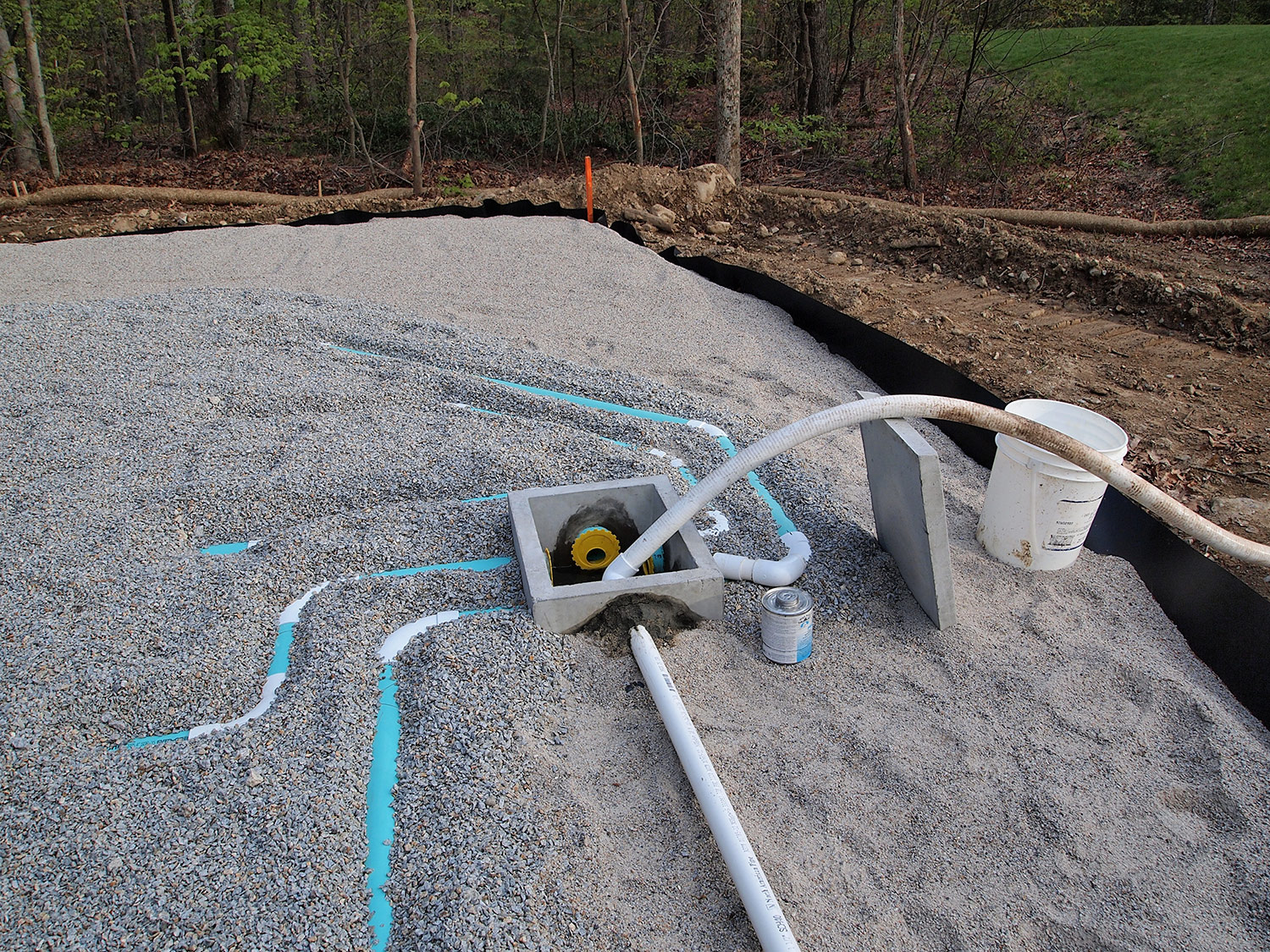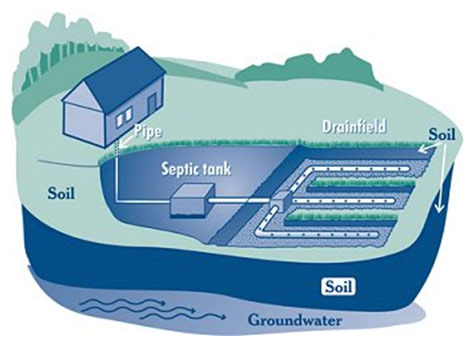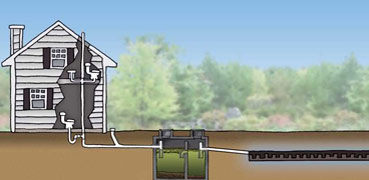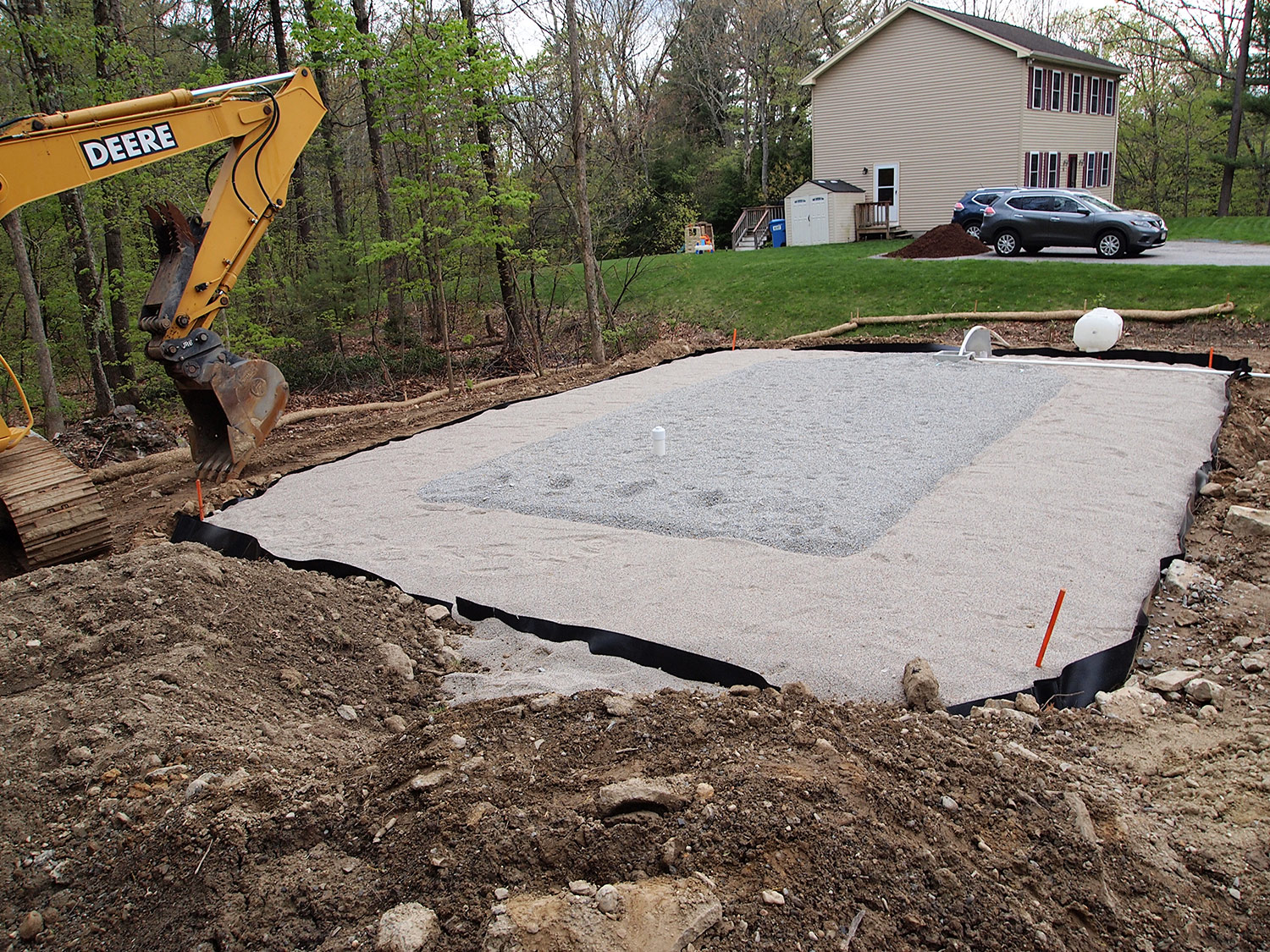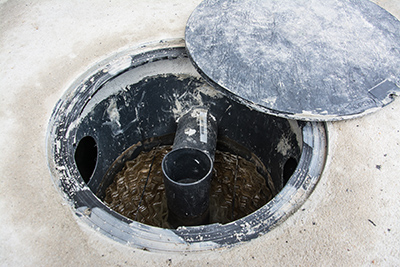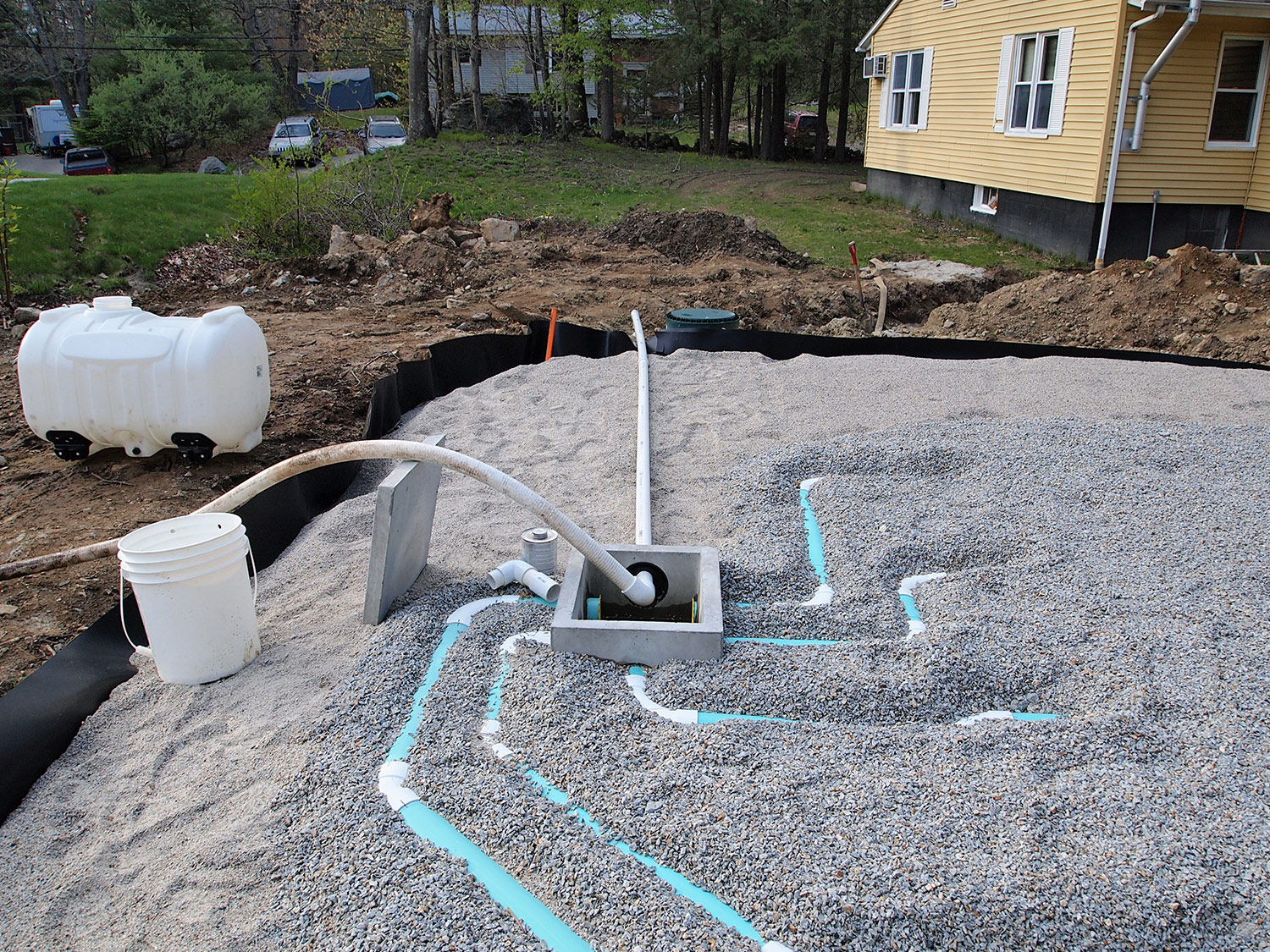
As long as you use and maintain it properly, a well-designed septic system shouldn't give you any trouble. With proper upkeep, yours can last as many as 30 years. But considering that it's underground and all, you might be wondering:
How do you tell if there's a problem?
Here are the signs your septic system's got an issue and it's time to call in the pros.
1. Water (or sewage) is backing up inside your home
Water—or smelly black liquid—gurgling up into the drains in your kitchen or sink can happen for a couple of reasons:
Your tank or drain field are too full
After dirty water and waste enter your septic tank, solids get separated from liquids. The wastewater is eventually pushed out into a drain field, a series of underground trenches or chambers. Once there, any harmful bacteria gets absorbed by the soil or digested by naturally occurring microbes.
But if your tank receives lots of water very fast—either because of heavy rain or maybe you're using much more water than normal—the tank or the drain field can become overloaded.
The most common reason people call a plumber about their septic tank is because it is too full.
A blocked pipe
Another likely reason that water's backing up into your home: a clogged distribution line somewhere between your house and your septic tank. Maybe you've got a small kid who happily flushed a sock down the drain, or you're guilty of tossing things like not-so-flushable wipes in your toilet.
Be proactive: Keep an eye on your water usage.
Take short showers, install low-flow toilets, and wash laundry over a few days rather than all at once. Don’t flush diapers, paper towels, or feminine hygiene products—basically anything non-biodegradable.
You should also limit the amount of food you put down your garbage disposal. Yes, it gets ground into tiny pieces, but over time, food waste can also end up clogging your drain field.
2. Green, spongy grass around your septic tank
Surprisingly, dying grass on top of your septic tank isn't necessarily a bad sign. (The soil on top of your septic tank often isn't as deep as it is over the rest of your lawn, which makes it easy for grass there to get parched.) But it is a red flag when the grass atop your septic tank is thriving far more than anywhere else in your yard.
While the area might look green and lush, it's a strong signal that you have a big problem.
That could be due to a leak of effluent, aka liquid wastewater, before it hits the drain field. Once it escapes your septic tank, it basically acts as fertilizer.
Be proactive: Get your septic system inspected each year, and pumped every three to five years so you can catch problems like damaged pipes, rust damage, and cracks in your tank early on.
3. You’ve got trees or shrubs near your system
Nice of you to want to pretty up the area, but tree roots naturally seek out sources of water—including leaky pipes or even condensation. And in their gusto to get nourishment, they can crack septic tank pipes, allowing dirt to enter, or they can collapse the pipes completely. (Smaller shrubs aren't necessarily better, since they can also spread out some deep roots.)
Be proactive: If you want to plant a tree, figure out how tall it will be at its maturity—then keep it that many feet away from your system. (That includes the actual septic tank, all pipes, and the drain field.) For instance, if you have a tree that will one day be 20 feet high, plant it at least 20 feet away from all components. Some trees—like bamboo, pine, and walnut—put out even more aggressive roots and will need to be planted much farther away, so consult your septic pro before you break ground.
Already have trees in the danger zone? Each time your system's serviced, make sure the pipes aren't compromised. If there’s a problem a camera can be sent into the line to see if tree roots are to blame.
4. Water's pooling in your yard
Occasionally, a high water table or excessive rainfall can saturate the drain field and prevent the septic tank from draining properly.
If you're pretty sure heavy rains are to blame for little lakes in your yard, you can try to give your septic system a chance to catch up by using it less. (Finally! A reason to not do laundry!) But if that doesn't get rid of standing water, call a plumber.
Be proactive: Direct rainwater runoff away from your drain field. Make sure your waterlines are at least 10 feet from your septic system. If you have a sprinkler system, make sure approved backflow devices are part of it.
5. A rotten egg smell
Yes, a gross sewage odor can indicate your system's failing. But that's not always the case.
There can be several different reasons you might smell septic gases. Those include a dried-out wax seal on a toilet (which seals your toilet bowl to the floor) as well as a dry trap in a floor drain. (It's often filled with water, which keeps out sewer gases.)
Be proactive: If you have a persistent odor inside your home, the first course of action is to check all exposed fixtures, and if nothing is found, it should be followed up with a smoke test to find leaks in the lines.
6. Slow drains
Slow drains are an indicator that there's a stoppage on the pipe itself that flows into the septic. And while you might be tempted to pull out the Drano or another drain cleaner, don't.
Harsh chemicals can deteriorate your pipes over time. Plus, chemical drain cleaners can kill the good enzymes and bacteria in your tank that help to break down waste.
Be proactive: Use a natural product with bacteria and enzymes; the accumulated gunk inside your pipes is tasty food for them.
They digest the waste and spread throughout your system, cleaning it completely. And it’s completely septic-safe.
For more information, contact Morse Engineering and Construction.
Source: realtor.com
